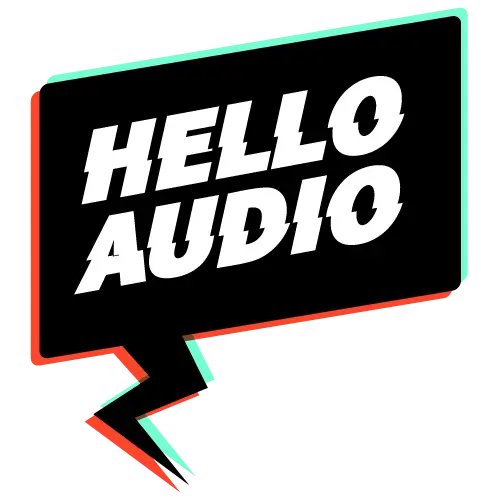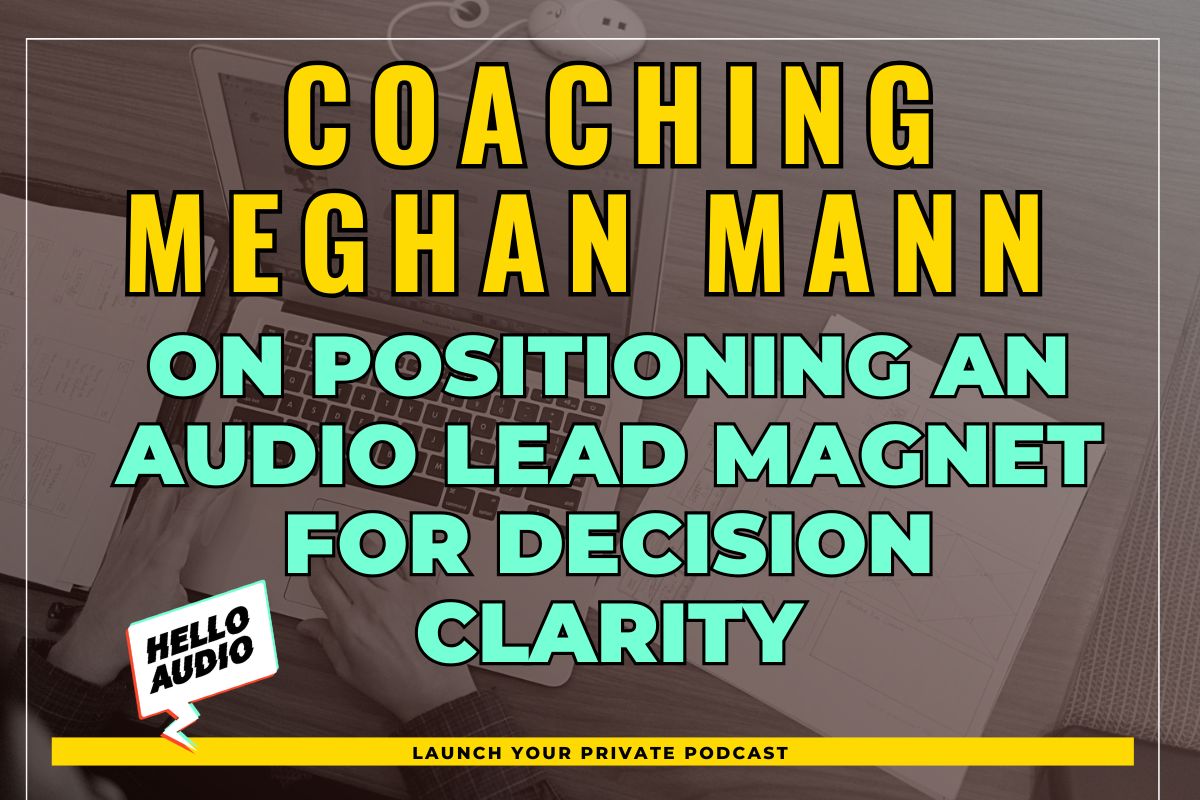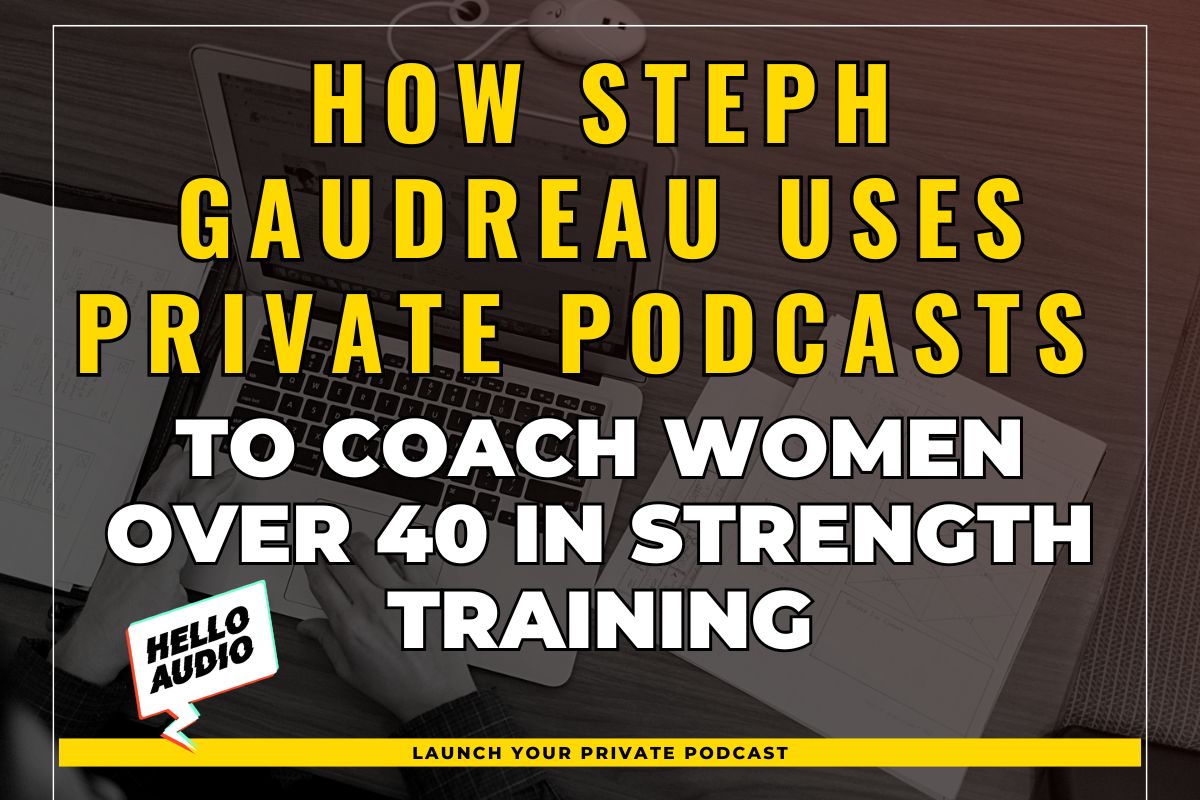Podcasts have gained immense popularity in the past few years. There are approximately 3.2 million podcasts worldwide, discussing every topic known and unknown to humanity. They have significantly outnumbered audiobooks.
If you are looking for a lucrative way to engage with your audience and create a name for yourself, starting a podcast will be most beneficial.
But where do you start? A common answer to this is Podbean, a podcast-hosting platform known and loved by many. However, it does lack in certain areas when it comes to overall performance.
Here are seven Podbean alternatives that would provide you with better assistance to kickstart your podcasting journey.
TL;DR – 7 Sites Like Podbean
Podbean is a popular podcast hosting platform. However, it is slowly losing appeal as better options have emerged to compete for its clientele.
Here are 7 great alternatives to Podbean that offer exceptional podcast hosting services.
- Hello Audio
- Buzzsprout
- Libsyn
- Anchor
- SoundCloud
- Spreaker
- Blubrry
Want to grow your business by building a community of loyal followers? Do something different. Launch your private podcast and make your audience feel heard in an exclusive community.
Start your journey with Hello Audio to convert your existing audio and video content into a podcast and create multiple revenue streams without extra effort. Furthermore, you can capture a wider audience, build a community, and grow your brand. Sign up for a 7-day free trial and test it out.

What is Podbean?
Podbean is a podcast-creating and hosting platform with over 600,000 podcasters. It lets you monetize your published audio content and offers an easy-to-use interface.
How Does Podbean Work?
The platform offers free signup, after which you can publish audio and video content through your Podbean account. Once you have published your content, it’s time to distribute it and increase your audience base.
To do so, Podbean offers an array of features like:
- You can promote podcasts via organic or paid channels to garner more attention and monetize them into a revenue stream.
- Podbean offers integrations with Ads Marketplaces and Apple Podcasts Subscription to maximize your revenue.
- Each account also has its own website, which is great for enhancing user experience. The website feature lets you create a separate brand identity with a few customization options.
- Apart from podcasts, you can livestream your content to hook your audience and create a tight-knit community.
However, even with such features, its popularity is slowly declining among podcasters.
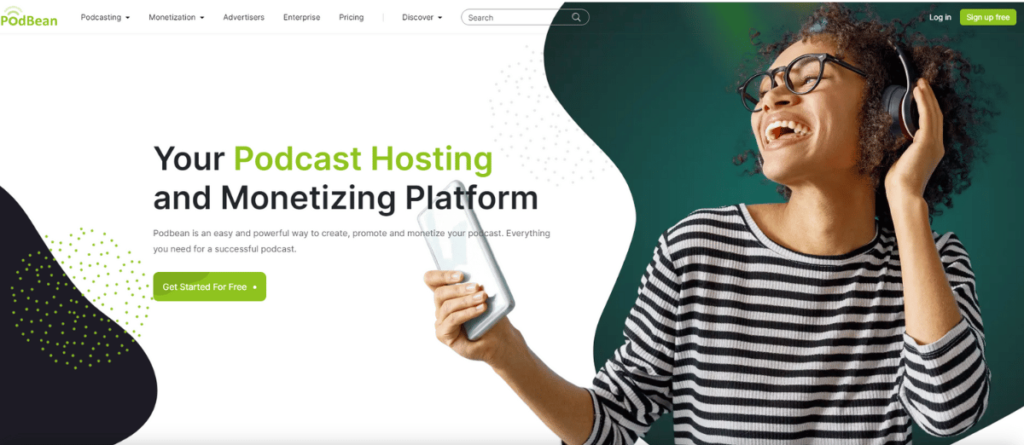
Why Do People Dislike Podbean?
Although Podbean has an extremely user-friendly interface, the platform might not be a fit for every individual.
Here are some reasons why some people don’t like Podbean:
- Limited Features: While its features have been praised in the past, many competitors currently provide significantly more tools to their users.
- Pricing Structure: Podbean has a less competitive pricing structure than some other big podcast platforms. The pricing difference is especially striking for podcasters with larger audiences, requiring more space and bandwidth.
- Less Customization: The platform only has a handful of customization options for its website and podcast player design. You will find an array of platforms providing far more resources to customize your website.
- Limited Monetization Options: Podbean doesn’t have many built-in monetization options. The other players in the market provide a lot more features to maximize your revenue.
Apart from all these pointers, some people have also faced technical issues while uploading audio or during playback. Considering these factors, you may want to consider other platforms for creating and publishing your podcasts.
Here are 7 alternatives to Podbean that you can consider to improve your podcast’s performance.
Top 7 Podbean Alternatives
In the present-day scenario, options are endless. However, not all of them are going to offer what they promise. Here are 7 handpicked tools that have proven results and can bolster your name in the podcast industry.
1. Hello Audio
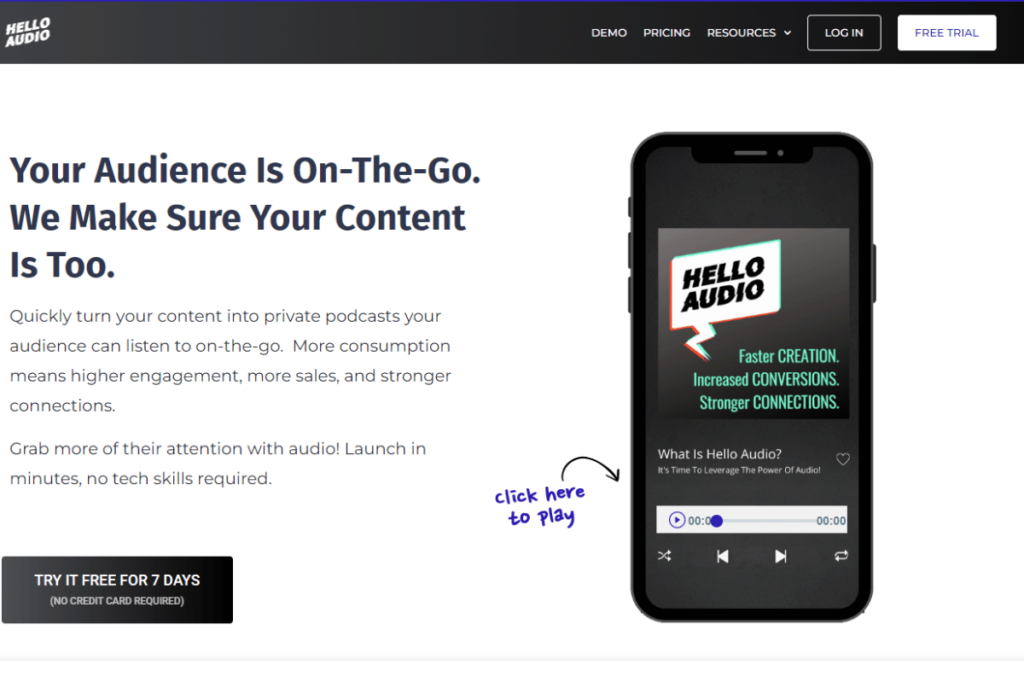
The increasing growth of the podcast market created a need for a tool that can ease the process of audio content creation, and Hello Audio has perfected it. With our help, podcasting is 3x easier and more effective for businesses. You can even repurpose Zoom call recordings into podcasts and publish them in no time.
Audio editing features are essential when choosing a tool. While Podbean offers basic audio editing tools, Hello Audio excels in audio quality with advanced editing tools, equalization, and sound reduction.
Hello Audio can also help you improve your audience engagement by hosting immersive, high-quality audio content created from your existing video or audio content. It seamlessly delivers your audio to popular podcast apps like Overcast, Google Podcast, Apple Podcast, and others.
Book an instant demo and see how you can make podcasts the highlight of your brand.
2. Podbean vs. Buzzsprout
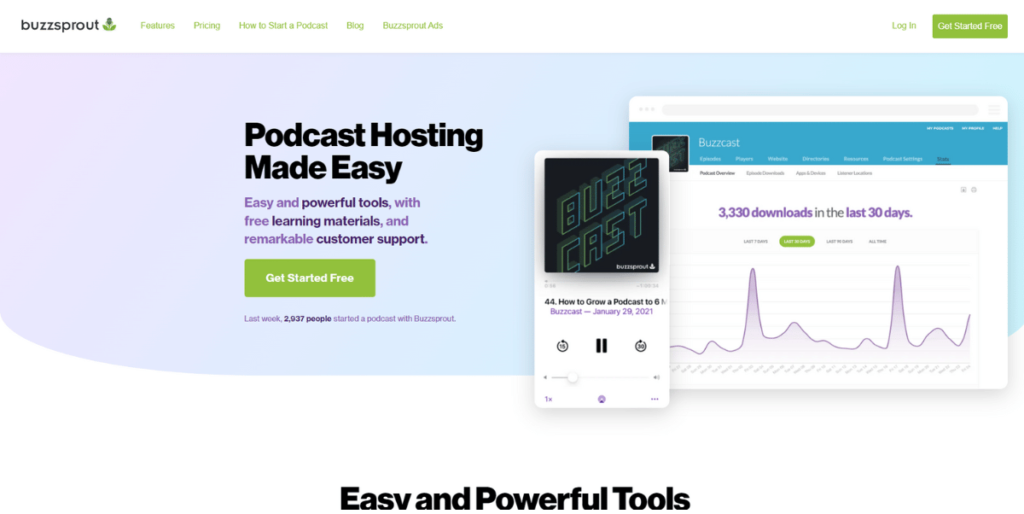
Both Podbean and Buzzsprout are popular podcasting options. While both have free plans, they cater to different needs.
- Podbean’s built-in monetization option can be limiting. Buzzsprout integrates with almost all the popular third-party services for better monetization options.
- Buzzsprout is more user-friendly and offers superior customer support compared to Podbean.
If you’re a beginner, Buzzsprout will be a great choice. It also provides you with resources to learn the craft of podcast making.
Sidenote: If you’re not content with Buzzsprout as well, check out our list of Buzzsprout alternatives.
3. Libsyn vs. Podbean
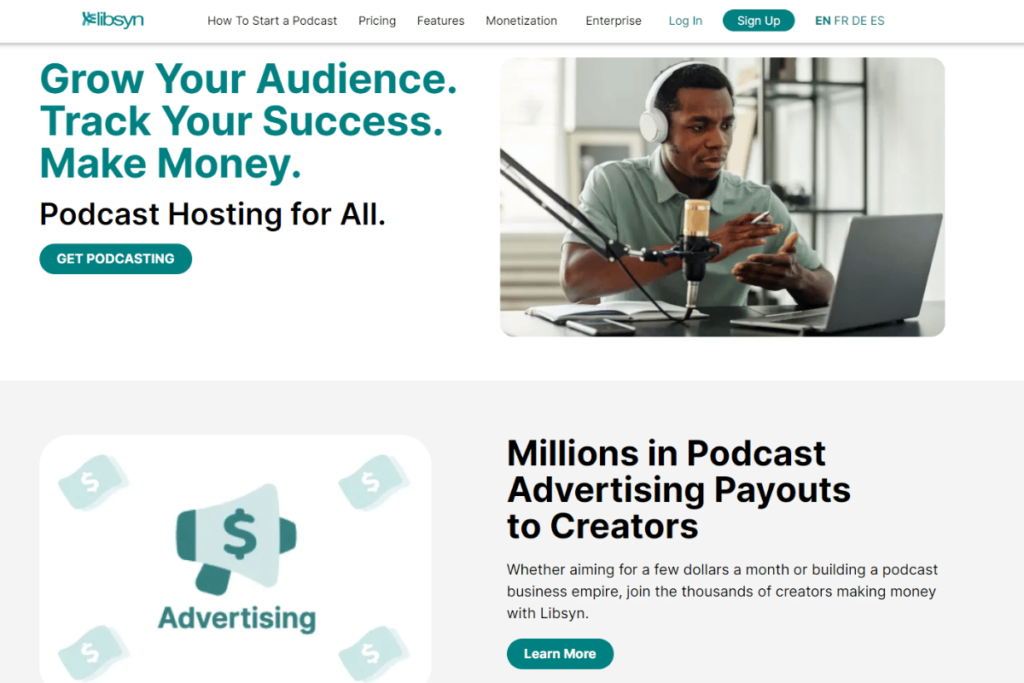
Libsyn’s most distinctive feature, compared to Podbean, is its social media scheduling option. Social media plays a significant role in any brand’s marketing journey; ignoring it can significantly affect your brand.
Even though you would have to invest some extra hours to learn Libsyn’s advanced features, it will help your podcast career in the long run. Here’s how:
- Podbean’s monetization options are limited in the advertising marketplace. Libsyn lets you earn through listener subscriptions and merchandise sales.
- Libsyn also has extremely advanced analytics tools compared to Podbean, which makes it ideal for professionals.
4. Podbean vs. Anchor
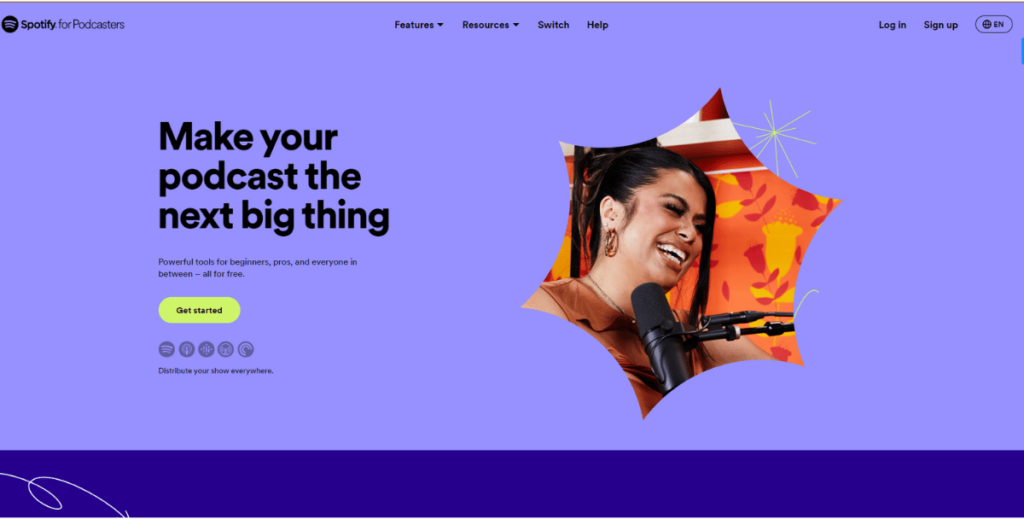
While you will have to pay for Podbean’s unlimited storage, Anchor (now rebranded as Spotify for Podcasters) lets you have it free of cost. You do not have to pay extra to ensure all your audio data is in one place.
Here are some more reasons you should consider Anchor over Podbean:
- Anchor prioritizes user-friendliness, making it a popular choice among amateur podcasters.
- It has unique features, such as recording with a friend, audio enhancement, Music+Talk, etc., that give you an edge over competitors.
- It is a Spotify-owned brand that gives you access to the app’s wide audience base.
In most aspects, Anchor stands out as a better alternative to Podbean.
5. Podbean vs. SoundCloud
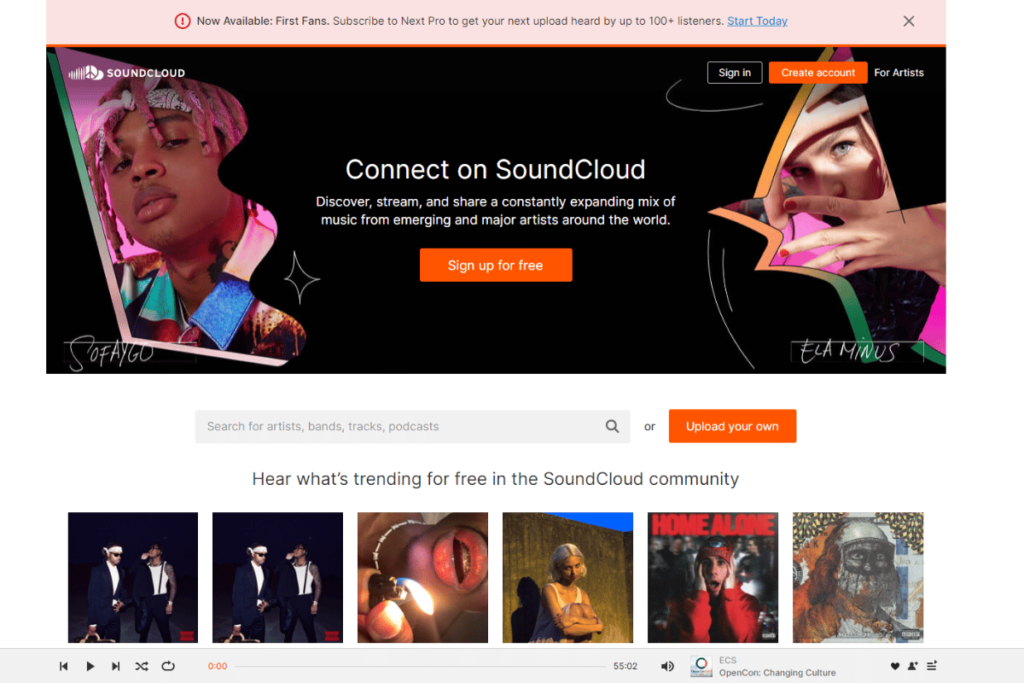
Podbean and SoundCloud both offer free plans and have similarly priced paid plans. However, the platforms differ from each other in various other ways.
Podbean is primarily dedicated to podcast hosting, while SoundCloud initially focused on music sharing and later expanded to include podcasting.
- SoundCloud’s features are more music-oriented, like audio remixing.
- SoundCloud is more versatile, allowing social sharing, collaborations, and member management.
6. Spreaker vs. Podbean
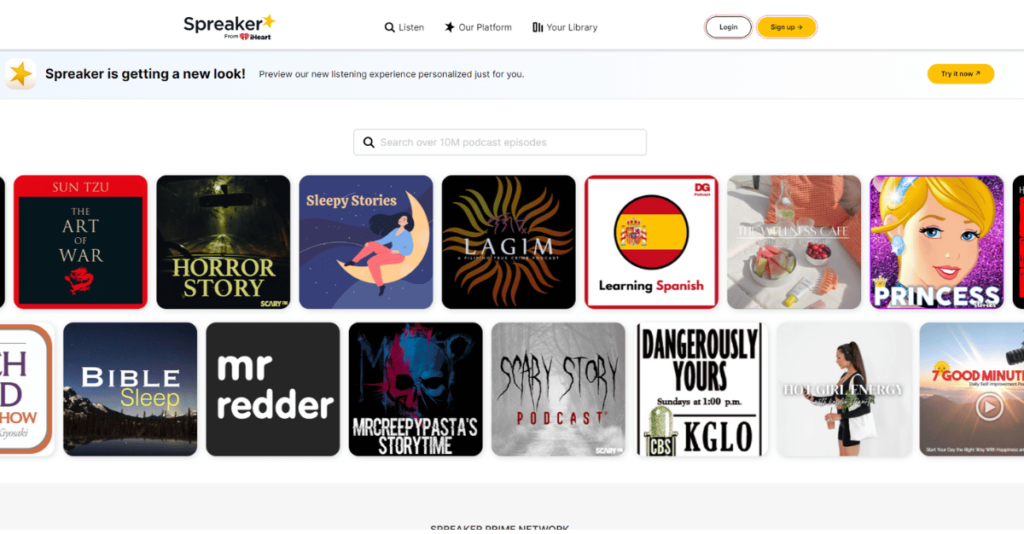
With similar pricing, bandwidth, analytics, podcast hosting, and distribution tools, Spreaker is a direct alternative to Podbean. Here’s what sets it apart:
- Spreaker has a live audio feature, which makes it ideal for broadcasters to connect with their audience.
- Podbean is considered to have a simple interface, yet you might require technical expertise to use its more advanced features. Spreaker, however, is even easier to use and requires no technical knowledge.
Although Podbean is more popular, there are certain regions where Spreaker’s audience surpasses that of Podbean. For instance, you can host multiple podcasts from a single Speaker account. Moreover, Spreaker has impeccable customer support, which Podbean lacks.
Before you settle on one of the two, it’s best to research where your target audience frequents the most and use that for your podcast channel.
7. Blubrry vs. Podbean
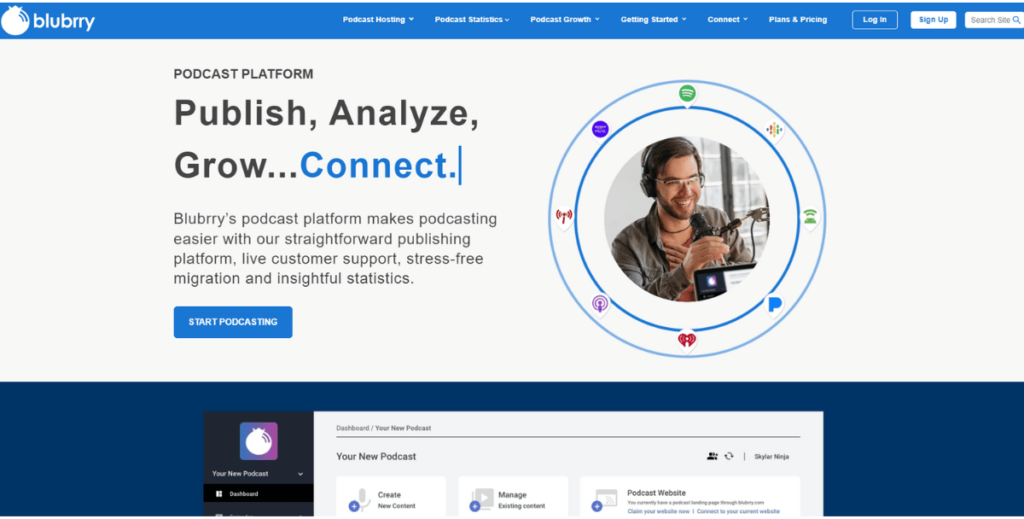
Even though both are great platforms, Blubrry takes podcast hosting to the next level with its extensive features. Some of the most impressive ones are:
- Audience analytics
- RSS feed generation
- Dynamic ad insertion
When compared based on pricing, Blubrry’s plans are cheaper than Podbean’s. While also offering exceptional live customer support for all users.
Unlike Podbean, Blubrry offers a dedicated integration plugin, PowerPress, that seamlessly integrates Blubrry with WordPress websites. Blubrry is among the more affordable options, while Podbean requires a higher investment to achieve similar results.
Buzzsprout vs. Anchor vs. Podbean
Are you torn between Buzzsprout, Anchor, and Podbean? The comparison below will help you better understand their differences and make a sound choice.
| Buzzsprout | Anchor (Spotify for Podcasters) | Podbean |
|---|---|---|
| Unlimited storage only in the paid version | Unlimited storage free of cost | Unlimited storage only in the paid version |
| Episode scheduling | Episode scheduling | Episode scheduling |
| Advanced analytics | Advanced analytics | Advanced analytics |
| Multiple monetization options | Limited monetization options | Multiple monetization options |
| User-friendly interface | User-friendly interface | User-friendly interface |
| No built-in editing or recording tool | Built-in recording and editing tools | Built-in live-streaming and recording functionalities |
| Mobile app available only for iOS | Mobile app available for iOS & Android | Mobile app available only for iOS & Android |
Further Reading:
- Patreon Alternatives For Creators, Artists, Writers, and More
- Top 11 Podia Alternatives
How to Choose the Best Platform for Your Needs
While all these Podbean alternatives are great in their own ways, not all can cater to your specific needs. Instead of hastily choosing a platform, we suggest you consider the following while finalizing your podcasting hosting platform.
1. Budget
Determine your budget limitations and choose a platform that aligns with your requirements. If you do not have the capital to start with an extensive plan, it’s best to choose a platform offering free trials or plans.
2. Features
Determine what you want to achieve from your podcast and which aspects of audio content you want to focus on. Based on that, evaluate which features are essential for your podcast, such as storage, analytics, monetization, online community building, or recording tools.
Then, select the platform that has all these features to support your vision.
3. Ease of Use
Consider your comfort level with technology and choose a platform with a user-friendly interface. Even if you require advanced, professional-level tools, select a platform that’s easy to use so you don’t need to spend a lot of time figuring it out.
4. Technical Requirements
Not every podcaster has high-end professional equipment at the beginning of their podcasting journey. However, the platform you choose must let you produce content that is at par with existing professional channels, even if your recording setup may not be great.
5. Focus on Community
The key to having a loyal audience base is creating an online community where your target audience feels comfortable. Hence, it is best to choose a platform that prioritizes community-building and even offers tools to do the same.
A platform that meets all these criteria is the one that will ensure your podcast journey is smooth and effortless.
Conclusion
The only way to stand out among millions of podcasts is to focus on and enhance your plus points. While this requires your efforts, a lot also depends on the platform you use for your podcasts.
Although Podbean is a fairly useful platform, it might not be ideal for your podcasting channel.
Why not give Hello Audio a whirl and build a successful podcasting career?
Sign up for a free trial with us today and see how easy it is to repurpose existing content into engaging private podcasts and build a targeted community of loyal customers.

